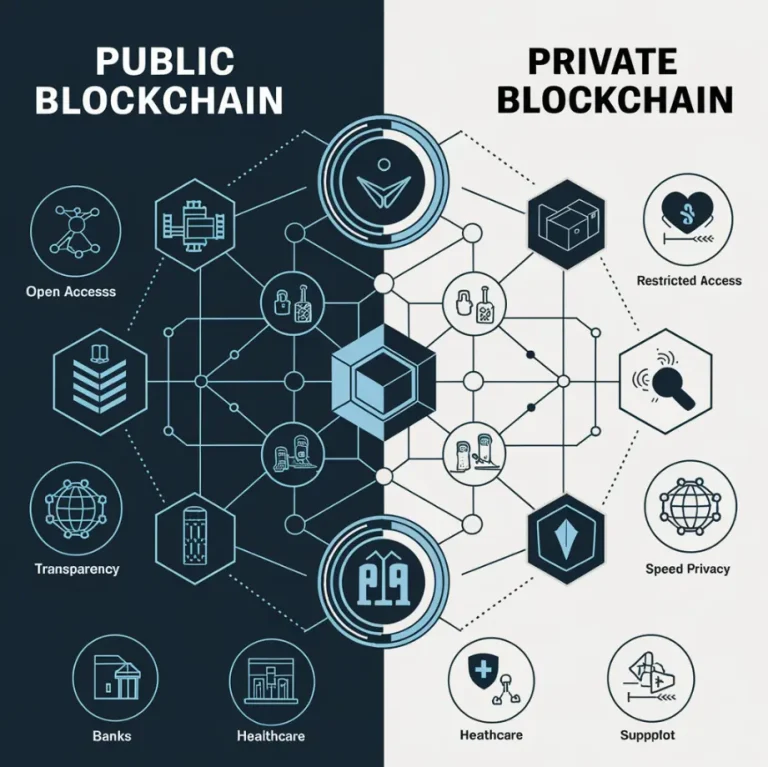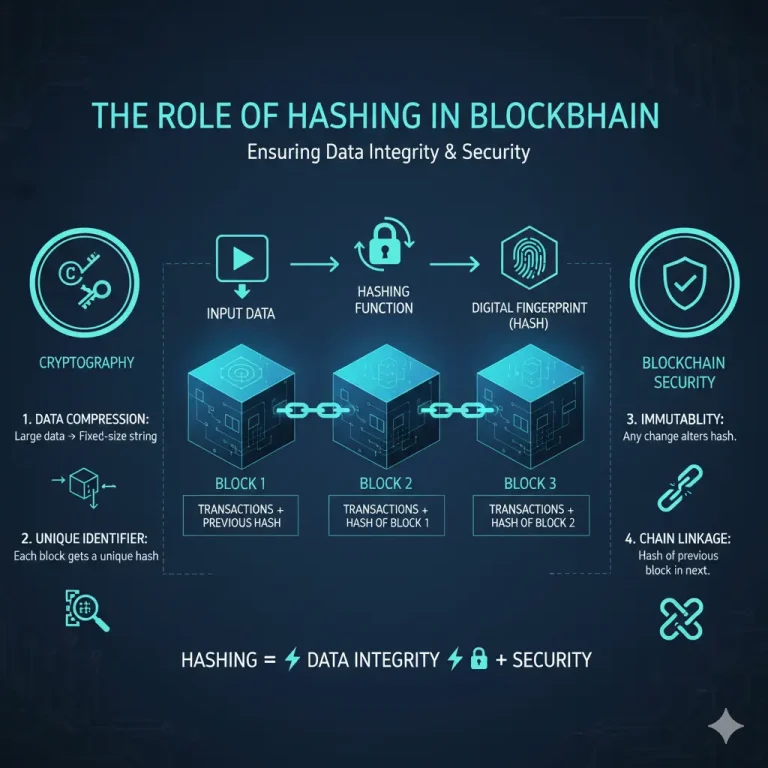What Is Blockchain Security:
Blockchain technology is now everywhere. It promises to provide a completely decentralized, open, and secure online transaction opportunity. However, with immense power comes greater responsibility, especially in terms of security. This article will guide you through all facets of blockchain security. So, let’s dive into what blockchain security is.
What Is Blockchain Security?
At its core, blockchain security encompasses the mechanisms and protocols that safeguard blockchain networks from cyberattacks, fraudulent activities, and unauthorized access. Unlike traditional systems that rely on a central authority, blockchain operates on a decentralized network, relying on cryptographic security, consensus mechanisms, and immutability to ensure safety. For a deeper dive into how blockchain achieves these benefits, explore our guide, “What Are the Advantages of Blockchain Technology.”
Features Of Blockchain Security:
- Decentralization: No single point of failure, which makes it harder for hackers to compromise the network.
- Cryptography: Advanced encryption ensures that data remains secure and tamper-proof.
- Immutability: Once data is recorded on the blockchain, it cannot be altered or deleted.
Types Of Blockchain Security:

Not all blockchains are created equal. Depending on their design and purpose, different blockchains offer varying levels of security. Here’s a breakdown of the main types:
Public Blockchains:
Public blockchains, such as Bitcoin and Ethereum, are open to anyone. Their transparency and decentralization make them highly secure, but they can be slower and more resource-intensive due to consensus mechanisms like Proof of Work (PoW).
Private Blockchains:
Private blockchains are restricted to specific users or organizations. They offer faster transactions and greater control but are less decentralized, making them more vulnerable to insider threats.
Consortium Blockchains:
A group of organizations controls these semi-decentralized blockchains. They strike a balance between public and private blockchains, offering enhanced security while maintaining some level of decentralization.
Hybrid Blockchains:
Hybrid blockchains combine elements of public and private blockchains, enabling organizations to tailor security features to their specific needs.
How Fraudsters Attack Blockchain Technology:
While blockchain is highly secure, it’s not immune to attacks. Fraudsters continually evolve their tactics to exploit vulnerabilities. Here are some common ways they target blockchain systems:
- 51% Attacks: In a 51% attack, a single entity gains control of more than 50% of a blockchain’s computing power, allowing them to manipulate transactions. This is more common in smaller, less secure networks.
- Phishing Scams: Fraudsters trick users into revealing their private keys or login credentials, giving them access to digital wallets and funds.
- Smart Contract Exploits: Smart contracts are self-executing agreements written in code. If there’s a bug or loophole in the code, hackers can exploit it to steal funds or disrupt the network.
- Sybil Attacks: In a Sybil attack, a hacker creates multiple fake identities to gain control of a network and manipulate transactions.
What is Blockchain Security for enterprises?
Enterprises are increasingly adopting blockchain technology to streamline operations, enhance transparency, and improve security. However, implementing blockchain in a business environment comes with its own set of challenges. Here’s how enterprises can ensure robust blockchain security:
- Choose the Right Blockchain Type: Select a blockchain that aligns with your business needs. For example, a private or consortium blockchain may be more suitable for enterprises that require greater control and privacy.
- Implement Strong Access Controls: Limit access to sensitive data and systems to authorized personnel only. Use multi-factor authentication (MFA) to add an extra layer of security.
- Conduct Regular Audits: Regularly audit your blockchain network to identify and fix vulnerabilities. This includes reviewing smart contracts and ensuring compliance with industry standards.
- Train Employees: Educate your team about blockchain security best practices and how to recognize potential threats, such as phishing scams.
What Is Blockchain Security Tips and Best Practices?
Whether you’re an individual or a business, following these tips can help you stay ahead of potential threats:
- Secure Your Private Keys: Your private keys are the gateway to your digital assets. Store them in a secure, offline location, such as a hardware wallet.
- Use Reputable Platforms: Stick to well-established blockchain networks and wallets with a proven track record of security.
- Keep Software Updated: Regularly update your blockchain software and applications to protect against the latest threats.
- Enable Multi-Factor Authentication (MFA): Add an extra layer of security to your accounts by enabling MFA.
- Be Cautious of Phishing Attempts: Never share your private keys or login credentials, and always verify the authenticity of websites and emails.
- Backup Your Data: Regularly back up your blockchain data to protect against data loss or corruption.







